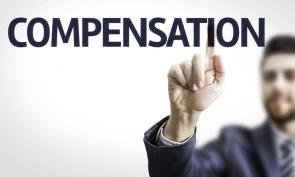
Question One: "Is July 2007 too late to apply for an H1B visa to work in the U.S.?"
When considering a move to the U.S., most foreign associate and partner candidates rely on the H1B visa—hoping their new U.S. employers will sponsor them. As is well known, however, the U.S. government-established quota for applicants wishing to work in the U.S. under such documentation has been scaled back drastically over the last three years. In 2006, for example, the quota for the H1B was set at 65,000, which is down from the more than 116,000 that were approved in 2005.
The lowering of the H1B quota was prompted by a number of factors, including 9/11, which heightened the government's awareness of our immigration laws. Thus, while the restrictive quota is designed to serve the purpose, among many others, of keeping a better eye on our shores and limiting the displacement of experienced American citizen professionals, such restrictive quota does not solve the grand dilemma that the demand for entry remains exceedingly high and far outweighs H1B supply.
What does this mean in concrete terms? The quota for the H1B for the fiscal year 2007 opened April 1, 2007, and was met April 2, 2007...one day later. This is a shocking fact, as the term for candidates to apply for and obtain such visa (with a fully liquid quota) traditionally runs from April through October. Of course, the government did open up an extra quota of 20,000 for those with advanced degrees (LL.M.s, for example); however, that quota was also met 29 days later on April 30, 2007. Hence, for anyone relying on obtainment of the H1B to complete his or her dreams of making a move to U.S. practice, your options are already severely restricted.
Question Number Two: "Is there an alternative to the H1B visa?"
Yes, there are alternatives. First, if you are already on an active H1B, you do not need to reapply. Because you are not a new applicant, you are not subject to the aforementioned quota. Moreover, if you have held H1B status at some point during the past six (6) years and have not been outside the U.S. for more than 365 consecutive days, you are also exempt from the aforementioned quota. Instead, you can get a "transfer" to a new H1B. (Remember: the H1B only allows you to work for the employer sponsoring you for the visa...and only in the capacity described.) Therefore, if you possess an active H1B, do not reapply. Simply seek a transfer instead to your new employer.
The H1B does not limit everyone, however. A large number of candidates may enter the U.S. in pursuit of their professional dreams under the H1B1, E-3, or TN-1. The TN-1, which is based upon the Free Trade Agreement between the U.S., Canada, and Mexico, applies to those lateral candidates with Canadian or Mexican citizenship. Note, however, that while there is a quota cap on Canadians, there is a 6,500 cap on Mexican citizens entering the U.S. Similarly, Australian candidates may enter the U.S. under the E-3 visa (reserved for 10,500 applicants), which is an arrangement proscribed via the Australian Free Trade Treaty. Finally, Singaporean and Chilean candidates may pursue employment with U.S. firms via the H1B1 (reserved for 6,800 applicants), which is again issued under the amended NAFTA treaty.
Hence, if you are a foreign candidate interested in working in the U.S. and possess citizenship with Canada, Mexico, Australia, Singapore, or Chile, you may still have options.
Outside of the H1B, a small handful of law firms will sponsor new associate/partner lateral hires under the J1 visa, which is sometimes referred to as the "Exchange Visitor Program." The good news is that there is no quota cap for this visa. The bad news is that, among other things, candidates operating under a J1 may incur a restriction, as the J1 (depending on your specific situation) may require you to return home to your country of origin for two (2) years before you are eligible to be approved for an H1B or a green card at a later date.
If you do not plan on returning home, with such terms having clearly been discussed between you and your new firm, you will likely not be able to acquire this visa. In order to put this visa in a better light, the J1 is typically extended to university sponsors for visiting scholars, researchers, and post-doctoral folks. Thus, the J1 really is a specialty situation which some law firms can work with and others simply cannot.
Depending upon your citizenship, there are many other possibilities for lateral candidates. You should speak to an immigration lawyer directly or your local immigration office to understand the visa rules, and your particular situation, more clearly.
Question Number Three: "Will a U.S. firm sponsor my green card?"
In the U.S., a large number of law firms will not sponsor foreign lateral candidates for their green cards due primarily to (1) the length of the green card process and (2) the legal costs associated therewith (such as the fees associated with labor certification and otherwise). Of course, there are exceptions to this rule for partner candidates with large portables or associate candidates with niche practice skills or unusual "perfect matches"—e.g., where the candidate is Canadian, hired by the U.S. office of a Canadian firm, with mutual designs that the candidate will be with the firm long-term (partnership material).
Having said this, as with any other piece of the U.S. employment puzzle, one should always take the opportunity to ask whether his or her potential employer will undertake the green card process on his or her behalf. If you don't ask, they won't offer it. If you do ask, there may be room for possibilities.
Question Number Four: "Putting aside visa considerations, how important is the New York (or other U.S.) bar relative to obtaining employment in the U.S.?"
The answer to the above question depends on the firm. For some law firms, admission to the New York (or other U.S. jurisdiction) bar is a mandatory requirement before they will even consider you for employment. For others, it is not. Very often, the better your academic history and firm credentials, the more a firm will ease up on its bar requirements.
Having said this, if you are a foreign lateral candidate and you already have a U.S. bar (preferably New York) under your belt and admission obtained in such jurisdiction, you have put yourself leagues ahead of the rest of the pack and raised your market value significantly. In sum, whether or not you have the bar is not a lone determining factor of employment, but it is extremely relevant.
About Harrison Barnes
No legal recruiter in the United States has placed more attorneys at top law firms across every practice area than Harrison Barnes. His unmatched expertise, industry connections, and proven placement strategies have made him the most influential legal career advisor for attorneys seeking success in Big Law, elite boutiques, mid-sized firms, small firms, firms in the largest and smallest markets, and in over 350 separate practice areas.
A Reach Unlike Any Other Legal Recruiter
Most legal recruiters focus only on placing attorneys in large markets or specific practice areas, but Harrison places attorneys at all levels, in all practice areas, and in all locations-from the most prestigious firms in New York, Los Angeles, and Washington, D.C., to small and mid-sized firms in rural markets. Every week, he successfully places attorneys not only in high-demand practice areas like corporate and litigation but also in niche and less commonly recruited areas such as:
- Immigration Law
- Workers Compensation
- Insurance
- Family Law
- Trust and Estate
- Municipal law
- And many more...
This breadth of placements is unheard of in the legal recruiting industry and is a testament to his extraordinary ability to connect attorneys with the right firms, regardless of market size or practice area.
Proven Success at All Levels
With over 25 years of experience, Harrison has successfully placed attorneys at over 1,000 law firms, including:
- Top Am Law 100 firms such including Sullivan and Cromwell, and almost every AmLaw 100 and AmLaw 200 law firm.
- Elite boutique firms with specialized practices
- Mid-sized firms looking to expand their practice areas
- Growing firms in small and rural markets
He has also placed hundreds of law firm partners and has worked on firm and practice area mergers, helping law firms strategically grow their teams.
Unmatched Commitment to Attorney Success - The Story of BCG Attorney Search
Harrison Barnes is not just the most effective legal recruiter in the country, he is also the founder of BCG Attorney Search, a recruiting powerhouse that has helped thousands of attorneys transform their careers. His vision for BCG goes beyond just job placement; it is built on a mission to provide attorneys with opportunities they would never have access to otherwise. Unlike traditional recruiting firms, BCG Attorney Search operates as a career partner, not just a placement service. The firm's unparalleled resources, including a team of over 150 employees, enable it to offer customized job searches, direct outreach to firms, and market intelligence that no other legal recruiting service provides. Attorneys working with Harrison and BCG gain access to hidden opportunities, real-time insights on firm hiring trends, and guidance from a team that truly understands the legal market. You can read more about how BCG Attorney Search revolutionizes legal recruiting here: The Story of BCG Attorney Search and What We Do for You.
The Most Trusted Career Advisor for Attorneys
Harrison's legal career insights are the most widely followed in the profession.
- His articles on BCG Search alone are read by over 150,000 attorneys per month, making his guidance the most sought-after in the legal field. Read his latest insights here.
- He has conducted hundreds of hours of career development webinars, available here: Harrison Barnes Webinar Replays.
- His placement success is unmatched-see examples here: Harrison Barnes' Attorney Placements.
- He has created numerous comprehensive career development courses, including BigLaw Breakthrough, designed to help attorneys land positions at elite law firms.
Submit Your Resume to Work with Harrison Barnes
If you are serious about advancing your legal career and want access to the most sought-after law firm opportunities, Harrison Barnes is the most powerful recruiter to have on your side.
Submit your resume today to start working with him: Submit Resume Here
With an unmatched track record of success, a vast team of over 150 dedicated employees, and a reach into every market and practice area, Harrison Barnes is the recruiter who makes career transformations happen and has the talent and resources behind him to make this happen.
A Relentless Commitment to Attorney Success
Unlike most recruiters who work with only a narrow subset of attorneys, Harrison Barnes works with lawyers at all stages of their careers, from junior associates to senior partners, in every practice area imaginable. His placements are not limited to only those with "elite" credentials-he has helped thousands of attorneys, including those who thought it was impossible to move firms, find their next great opportunity.
Harrison's work is backed by a team of over 150 professionals who work around the clock to uncover hidden job opportunities at law firms across the country. His team:
- Finds and creates job openings that aren't publicly listed, giving attorneys access to exclusive opportunities.
- Works closely with candidates to ensure their resumes and applications stand out.
- Provides ongoing guidance and career coaching to help attorneys navigate interviews, negotiations, and transitions successfully.
This level of dedicated support is unmatched in the legal recruiting industry.
A Legal Recruiter Who Changes Lives
Harrison believes that every attorney-no matter their background, law school, or previous experience-has the potential to find success in the right law firm environment. Many attorneys come to him feeling stuck in their careers, underpaid, or unsure of their next steps. Through his unique ability to identify the right opportunities, he helps attorneys transform their careers in ways they never thought possible.
He has worked with:
- Attorneys making below-market salaries who went on to double or triple their earnings at new firms.
- Senior attorneys who believed they were "too experienced" to make a move and found better roles with firms eager for their expertise.
- Attorneys in small or remote markets who assumed they had no options-only to be placed at strong firms they never knew existed.
- Partners looking for a better platform or more autonomy who successfully transitioned to firms where they could grow their practice.
For attorneys who think their options are limited, Harrison Barnes has proven time and time again that opportunities exist-often in places they never expected.
Submit Your Resume Today - Start Your Career Transformation
If you want to explore new career opportunities, Harrison Barnes and BCG Attorney Search are your best resources. Whether you are looking for a BigLaw position, a boutique firm, or a move to a better work environment, Harrison's expertise will help you take control of your future.
Submit Your Resume Here to get started with Harrison Barnes today.
Harrison's reach, experience, and proven results make him the best legal recruiter in the industry. Don't settle for an average recruiter-work with the one who has changed the careers of thousands of attorneys and can do the same for you.
BCG Attorney Search matches attorneys and law firms with unparalleled expertise and drive, while achieving results. Known globally for its success in locating and placing attorneys in law firms of all sizes, BCG Attorney Search has placed thousands of attorneys in law firms in thousands of different law firms around the country. Unlike other legal placement firms, BCG Attorney Search brings massive resources of over 150 employees to its placement efforts locating positions and opportunities its competitors simply cannot. Every legal recruiter at BCG Attorney Search is a former successful attorney who attended a top law school, worked in top law firms and brought massive drive and commitment to their work. BCG Attorney Search legal recruiters take your legal career seriously and understand attorneys. For more information, please visit www.BCGSearch.com.
Harrison Barnes does a weekly free webinar with live Q&A for attorneys and law students each Wednesday at 10:00 am PST. You can attend anonymously and ask questions about your career, this article, or any other legal career-related topics. You can sign up for the weekly webinar here: Register on Zoom
Harrison also does a weekly free webinar with live Q&A for law firms, companies, and others who hire attorneys each Wednesday at 10:00 am PST. You can sign up for the weekly webinar here: Register on Zoom
You can browse a list of past webinars here: Webinar Replays
You can also listen to Harrison Barnes Podcasts here: Attorney Career Advice Podcasts
You can also read Harrison Barnes' articles and books here: Harrison's Perspectives
Harrison Barnes is the legal profession's mentor and may be the only person in your legal career who will tell you why you are not reaching your full potential and what you really need to do to grow as an attorney--regardless of how much it hurts. If you prefer truth to stagnation, growth to comfort, and actionable ideas instead of fluffy concepts, you and Harrison will get along just fine. If, however, you want to stay where you are, talk about your past successes, and feel comfortable, Harrison is not for you.
Truly great mentors are like parents, doctors, therapists, spiritual figures, and others because in order to help you they need to expose you to pain and expose your weaknesses. But suppose you act on the advice and pain created by a mentor. In that case, you will become better: a better attorney, better employees, a better boss, know where you are going, and appreciate where you have been--you will hopefully also become a happier and better person. As you learn from Harrison, he hopes he will become your mentor.
To read more career and life advice articles visit Harrison's personal blog.





